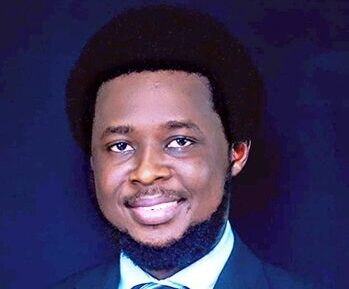By: Alex A. Bah, Public Relations Assistant, ACC
The Inter-governmental Action Group Against Money Laundering in West Africa (GIABA) together with the Financial Intelligence Agency Sierra Leone (FIA-SL) has met with the Commissioner of the Anti-Corruption Commission (ACC) Francis Ben Kaifala Esq. to consult with him on efforts being made by Sierra Leone to combat money laundering and other transnational crimes in the country. The engagement took place on Wednesday, 7th August, 2024, at the Conference Hall of the Integrity House, Tower Hill, Freetown.
The delegation, which was led by David Borbor, Director General of the FIA-SL, comprised the Executive Director of GIABA, Edwin W. Harris Jnr., Director of the Financial Intelligence Unit of the Gambia, Alhaji Daboh, and other staff of GIABA and FIA-SL.The Director General of the FIA-SL said the meeting was meant to discuss issues bordering on the work of GIABA, Combating of Financial Crimes and Money Laundering in West Africa, and plans to have Sierra Leone host GIABA’s forthcoming plenary.
Mr Bobor also stated that Sierra Leone was subjected to a second round of mutual evaluation in 2019, and in 2020 when the results were published there were a number of strategic deficiencies that needed to be addressed before transitioning into the third round of evaluation. “There is no better partner in this than the ACC and we have enjoyed a lot of support from them, with all thanks to the Commissioner,” he noted.
The Executive Director of GIABA, Edwin W. Harris Jnr., in his statement, commended the ACC Commissioner and the work of the ACC, noting his admiration at the deep working relationship between the ACC and FIA-SL. He however stated that all other countries did not do well in the second round of evaluation, highlighting issues of limited use of artificial intelligence, weak implementation, inadequate awareness raising and non-prioritization of money laundering investigations. Mr. Harris stated that successfully implementing the issues raised will help the country to better its performance in subsequent evaluations. “We are thankful as we know who you are and your support will go a long way,” the Executive Director added whilst requesting for the ACC to further support the FIA-SL in its transition from a Unit to an Agency. This, he said, means the Agency now has bigger responsibilities, and therefore needs a building on their own. He also requested for the establishment of a central authority to transmit and process formal requests to aid in financial crimes investigations.
While responding, the ACC Commissioner welcomed the GIABA team and expressed his delight to host such a meeting, noting that the ACC together with these institutions, work in a complicated, complex and ever-changing space. He said the partnership was important for the purpose of exerting control to address money laundering and other forms of economic crimes.
He said this also means making sure people were held accountable. “This requires cooperation with other institutions like the FIA-SL, which we consider a critical extension of our work. Cooperation is also key even at the regional level as money laundering activities are often cross border crimes,” the Commissioner said.
Mr Kaifala added that the issues raised in the GIABA evaluation report could affect the country’s assessment in other areas, and its image and investment attraction, among others. He said there is therefore the need to address the issues in the report more than ever before, especially so when they are all doable.
He told the GIABA team that the ACC has created a new Directorate that will exclusively be charged with dealing with the management of assets recovered from economic crimes. He said that the ACC has additionally resourced its Financial Intelligence Unit with Forensic Accountants. “Dealing with these issues is not easy but they are very doable as it only needs such collaborative moves and tenacity,” he concluded.









